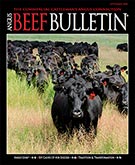
Medical Debt Can Wipe You Out
Medical debt is causing more people to work longer or return to work during retirement.
Medical debt is not something we want to think about, much less plan for. However consider a few facts.
- As of 2012, about half of all adults — 117 million people — had one or more chronic health conditions. One in four adults had two or more chronic health conditions, according to the Center for Disease Control and Prevention.
- The likelihood of having a disability increases with age, with 69% of adults over 60 having a diagnosed physical or mental disability, according to the National Disability Institute.
- More than one-quarter of U.S. adults struggle to pay their medical bills, according to the Kaiser Family Foundation (KFF). This includes 62% of those with insurance, whether independently or through an employer.
- Medical debt is the No. 1 source of personal bankruptcy filings in the United States. In 2014, an estimated 40% of Americans racked up debt resulting from a medical issue.
- Medical costs are increasing faster than the cost-of-living rate, and projections are that this will continue.
- A couple aged 65 retiring in 2018 could anticipate $280,000 (after tax) in health care costs, excluding long-term care, according to Fidelity’s Retirement Health Care Cost Estimate.
The good news is you can devise a strategy to cover medical costs using insurance plans and personal assets as income to cover health care costs, according to the “How to Pay for Health Care Costs” lesson from the National Endowment for Financial Education.
Emergency savings can help. Many people wind up in debt over medical issues because they don’t have adequate savings to cover an unexpected cost. According to a recent GoBankingRates survey, 69% of Americans have less than $1,000 in savings, while 34% have no money in the bank. Financial experts advise to set aside enough savings to cover three to six months’ worth of living expenses. Even those with insurance are at risk after a costly injury or illness.
To build your savings, create a budget so you can accurately track your spending and identify spending leaks. Next, reduce your spending for all categories that aren’t essential living expenses, including leisure, restaurant meals and cable packages. If you need to consider more significant changes, think about downsizing your living space, selling a vehicle or working a side job to generate extra income. The key is to save up enough money so you’re protected at all times.
Another suggestion is to estimate your life expectancy and medical expenses with one of the following tools, to determine if you will have a shortfall requiring your savings or debt.
- Social Security Administration’s Life Expectancy Calculator shows the average number of additional years a person can expect to live based only on the gender and date of birth entered.
- Living to 100 Calculator uses answers to questions about lifestyle and health history to provide an estimate of life expectancy based on current circumstances.
- AARP Health Care Costs Calculator estimates future health care costs, as well as how much may be covered by Medicare.
If you realize you will have a gap in saving for health care expenses, consider increasing contributions to your tax-advantaged accounts, especially Health Saving Accounts (HSAs) if you have one. This enables tax-free spending on health care.
Financial planning takes time, patience and discipline. Thinking long-term and saving for potential future high out-of-pocket medical costs means spending less for today’s wants. Consider attending free Retirement Planning online workshops hosted several times each year. Find the registration link in the Events channel at MIMoneyHealth.org and find more information about the reasons for and ways to save.
Editor’s Note: Brenda Long is a Michigan State University Extension educator.







